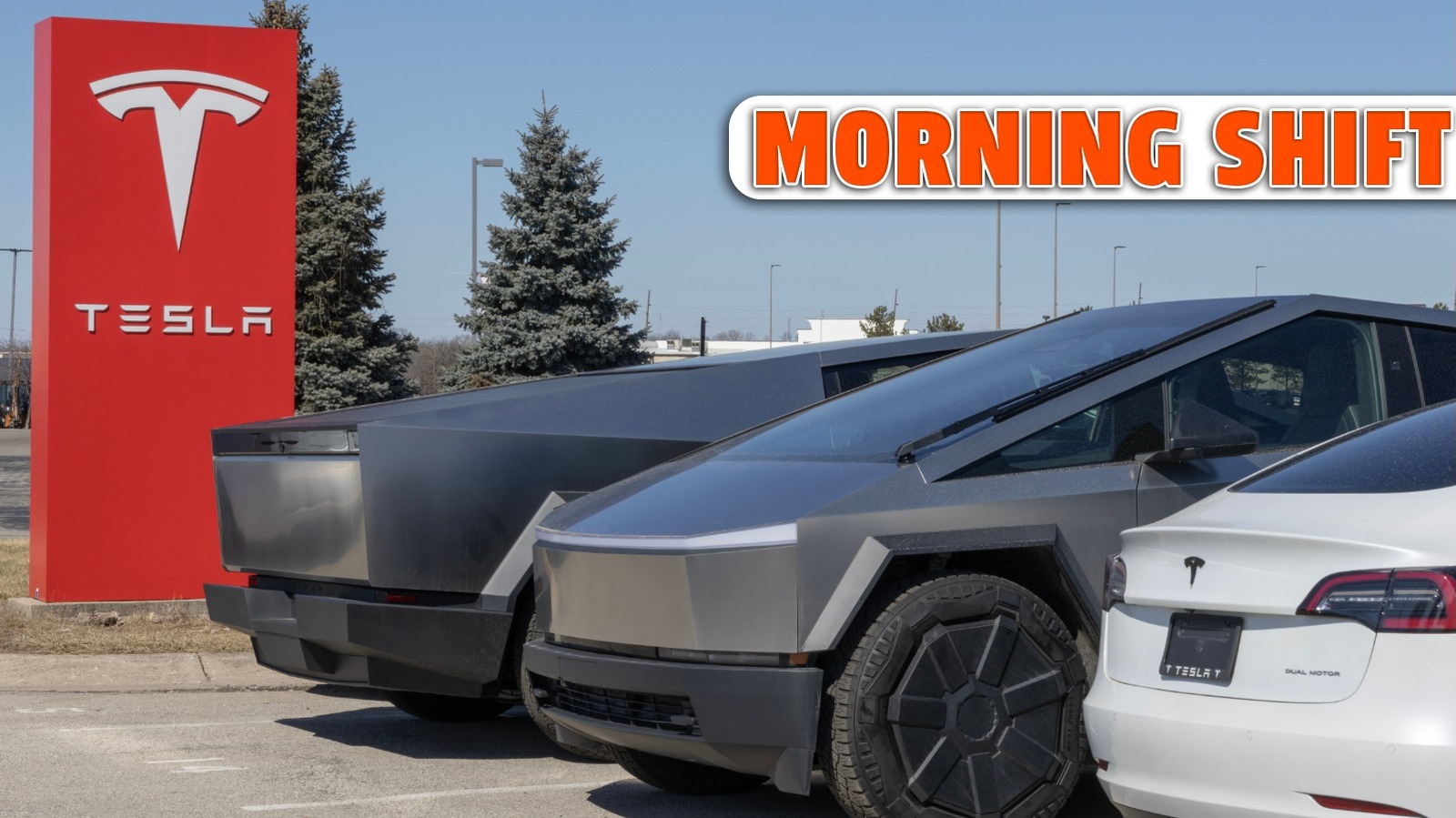Happy Wednesday! It’s June 4, 2025, and this is The Morning Shift — your daily roundup of the top automotive headlines from around the world, in one place. This is where you’ll find the most important stories that are shaping the way Americans drive and get around.
In this morning’s edition, Tesla’s decline continues, and China’s tight control of magnet exports is changing how automakers think about assembly. Plus, Americans keep buying big cars, and automakers are watching the courts to see the future of U.S. tariffs.
1st Gear: Tesla’s sales continue to slow
Everyone around the world is pretty fed up with Elon Musk, save for some apartheid ghouls and California governor Gavin Newsom, apparently. Car shoppers, both at home and abroad, have started thinking twice about giving Musk their hard-earned money in exchange for his dated, cheap-feeling EVs — a buying approach that’s led the company’s sales to spiral. From Reuters:
Tesla’s sales dropped for the fifth straight month in Britain, Germany and Italy in May, underscoring the challenges the electric vehicle-maker faces over CEO Elon Musk’s politics and its model line-up.
…
Tesla sales have plunged in some European markets and in China, as customers have favoured Chinese EVs because of their competitive prices and in some cases in protest at Musk’s political activities.
Elon Musk has played a lot of very, very stupid games. This is likely one of the least stupid prizes he could win, all things considered.
2nd Gear: China’s lockdown on magnets is making some automakers consider building parts in the country
The Chinese government placed strict restrictions on exports of rare-earth magnets earlier this year, and automakers looking to build magnet-heavy electric motors have since been racing to figure out ways around the limits. As it turns out, the best option may be exactly what China wants: Move factories into the country. From the Wall Street Journal:
Four major automakers are racing to find workarounds to China’s stranglehold on rare-earth magnets, which they fear could force them to shut down some car production within weeks.
Several traditional and electric-vehicle makers—and their suppliers—are considering shifting some auto-parts manufacturing to China to avoid looming factory shutdowns, people familiar with the situation said.
…
“If you want to export a magnet [from China] they won’t let you do that. If you can demonstrate that the magnet is in a motor in China, you can do that,” said a supply-chain manager at one of the carmakers.
China in April began requiring companies to apply for permission to export magnets made with rare-earth metals, including dysprosium and terbium. The country controls roughly 90% of the world’s supply of these elements, which help magnets to operate at high temperatures. Much of the world’s modern technology, from smartphones to F-35 jet fighters, rely on these magnets.
Building car parts outside of the U.S. will hurt automakers here, but building them outside of China may become impossible — or at least unrealistically complicated to manage. Who wins?
3rd Gear: Americans still love their lumbering behemoths
Tariff fears pushed Americans to buy more cars earlier this year, and many of them went for the absolute biggest boxes they could fit on four wheels — massive, hulking vehicles, including those built by Ford and Hyundai. From Reuters:
U.S. auto sales for Ford Motor and South Korea’s Hyundai Motor rose in May, the companies reported on Tuesday, as concerns over potential tariff-related price hikes prompted buyers to act fast on their purchases of cars and SUVs.
U.S. President Donald Trump’s tariff policies have fueled uncertainty across the auto industry, driving up supply costs, pressuring margins and pushing some automakers to pass the expenses on to consumers.
The sales also got a boost from offers and trade-in deals for affordable pickups and crossovers.
The average car trip in the U.S. carries less than one and a half people, so clearly we all need 30-seat Canyoneros. It’s the only way to be safe, you see, when everyone else is also in a Canyonero. This is a good way to run a society.
4th Gear: Automakers are waiting for court rulings on tariffs
President Donald Trump’s tariffs on cars and car parts have sent the industry into turmoil, given that the seeming edict that all cars must begin as ores mined from American soil, and at no point may any components be produced outside our borders isn’t incredibly realistic. Now, auto part makers are turning to the courts to see where this is all going. From Automotive News:
Recent court rulings on the legality of some of President Donald Trump’s tariffs give the auto industry a glimmer of hope that it will get some of the long-term trade policy certainty it’s been craving, supplier executives and experts said.
“It at least puts it on a path towards clarity,” said Mitch Zajac, attorney in the automotive practice group at Butzel, which represents a number of suppliers.
…
Challenges in court are unlikely to deter the Trump administration from seeing tariffs as a negotiating tool, Zajac said, but the ultimate ruling could help the industry to know which components are subject to which tariffs moving forward.
There’s, of course, still the big question: If the courts shoot down Trump’s tariffs, and he refuses to back down on them, what happens? At a base enforcement level, who do lower-ranking authorities listen to? For all these constitutional crises and more, stay tuned to Being Alive.
Reverse: Votes for women
Personally? Big fan of women being able to vote.
On The Radio: Rebecca Black – ‘Sugar Water Cyanide’
There’s something about this track that scratches that “Art Angels”-era Grimes itch in my brain, and I will always love any track that hits that vibe for me.


